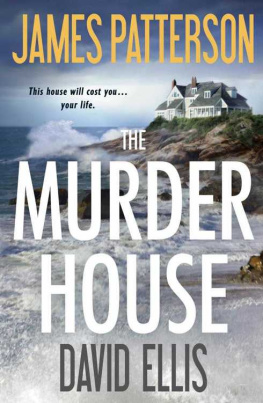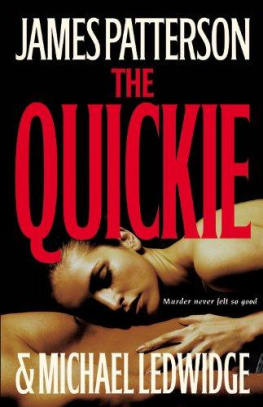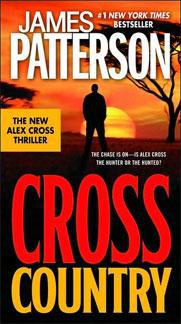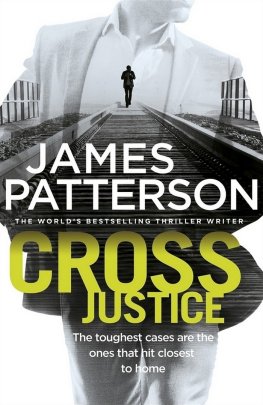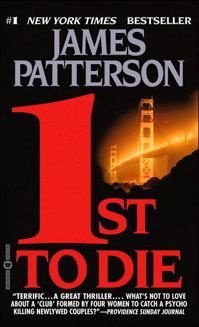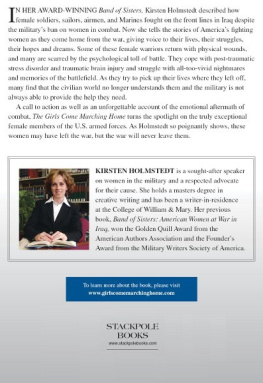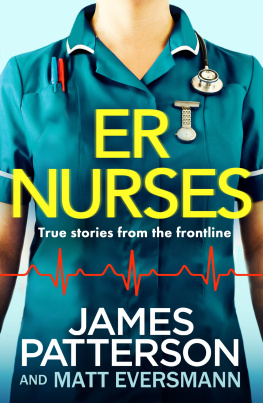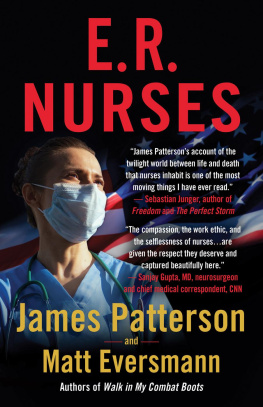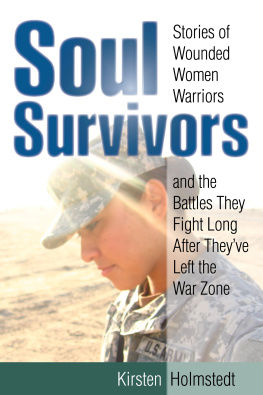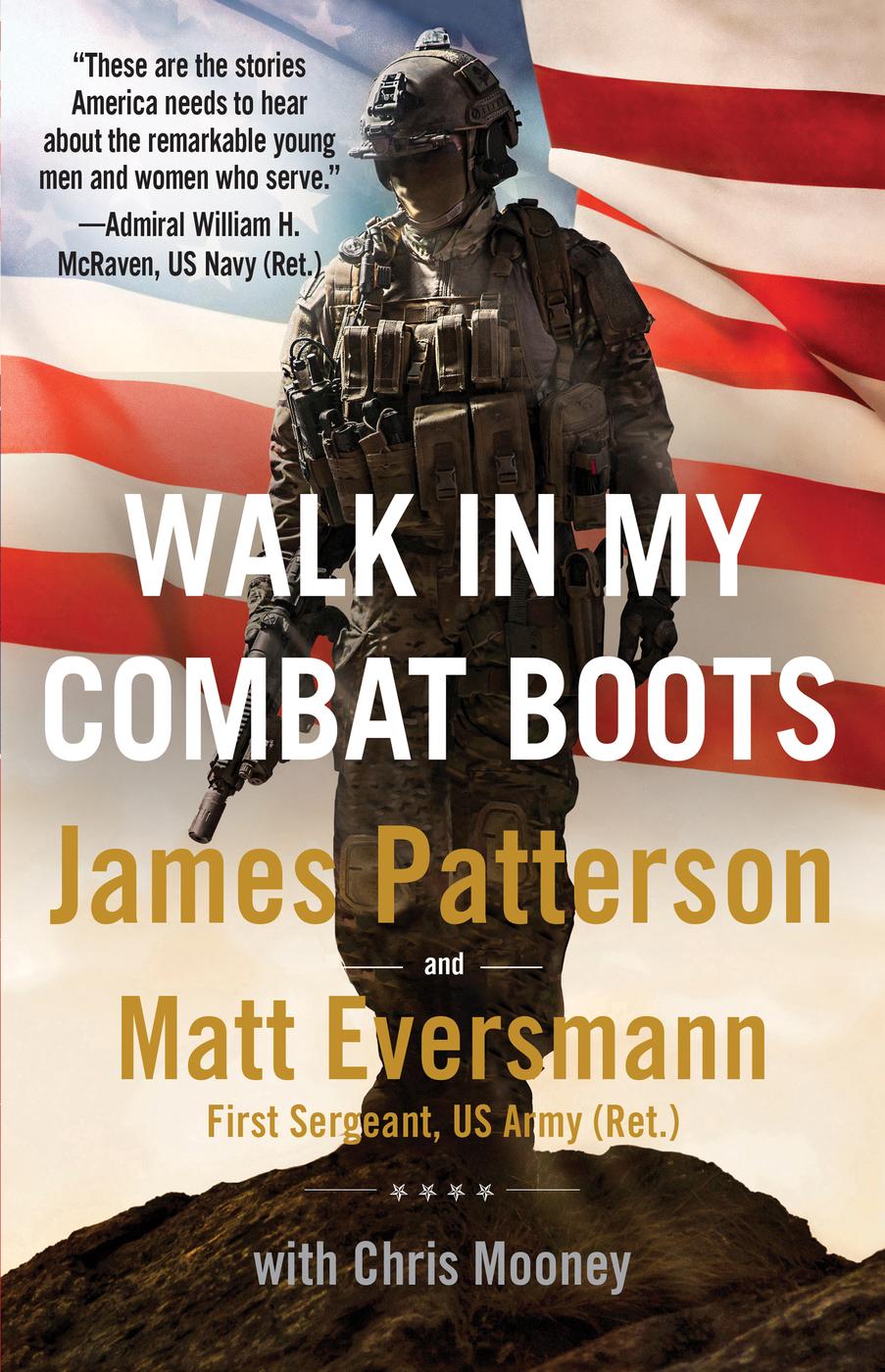
Names and identifying details of some of the people portrayed in this book have been changed.
Copyright 2021 by James Patterson
Hachette Book Group supports the right to free expression and the value of copyright. The purpose of copyright is to encourage writers and artists to produce creative works that enrich our culture.
The scanning, uploading, and distribution of this book without permission is a theft of the authors intellectual property. If you would like permission to use material from the book (other than for review purposes), please contact permissions@hbgusa.com. Thank you for your support of the authors rights.
Little, Brown and Company
Hachette Book Group
1290 Avenue of the Americas, New York, NY 10104
littlebrown.com
facebook.com/littlebrownandcompany
twitter.com/littlebrown
First edition: February 2021
Little, Brown and Company is a division of Hachette Book Group, Inc. The Little, Brown name and logo are trademarks of Hachette Book Group, Inc.
The publisher is not responsible for websites (or their content) that are not owned by the publisher.
The Hachette Speakers Bureau provides a wide range of authors for speaking events. To find out more, go to hachettespeakersbureau.com or call (866) 376-6591.
ISBN 978-0-316-42910-8 (ebook)
Library of Congress Control Number: 2020941488
E3-21210114-DANF-ORI
To Rory Patrick Hamill
Whats coming next from James Patterson?
Get on the list to find out about coming titles, deals, contests, appearances, and more!
The official James Patterson newsletter.

Mike Levasseur grew up outside Hartford, Connecticut. When he graduated from high school in 1997, he joined the US Army National Guard. He served as a civilian firefighter and paramedic for twenty years alongside his military service. He was deployed eight times, three of which were combat missions. After sustaining multiple injuries, Mike retired at age thirty-eight and went on to earn a masters degree in emergency management from Georgetown University.
W ere not going to make it.
This from Jackson, the squad leader of my platoon. Hes referring to the forty-plus Humvees on the base in Kuwait, which in 2004 is nothing but a big mess of tents in the middle of the desert. The vehicles are all soft-shell. Not a single one has armor on it.
Its 2:00 a.m. I just stepped off a plane.
Jackson opens his duffel and removes two Gatorade bottlesthe big thirty-two-ounce ones. He hands them to me, then looks back down at the bag, thinking.
Better make it three, he says, and grabs another one. Follow me.
Twenty-four hours ago, I was at Fort Drum, in upstate New York, training with the US Army National Guard and freezing my ass off in forty-five-below-zero weather.
I havent slept since I was pulled from the field. No soldier does when told youre going to war.
Jackson finds an engineer. Were heading to Baghdad, Jackson tells him, and Id like to make it there in one piece.
What do you need?
Plate armor. Enough to weld the doors and cover the underside in case we drive over an IED on Military Supply Route Tampa. I also want to line the inside floor of the Humvee with sandbags.
Jackson holds up a Gatorade bottle. Brought you one of each. Vodka, gin, and bourbonthe good stuff, not the cheap stuff. We have a deal?
Five hours later, were driving a jerry-rigged Humvee in a convoy heading north on this main highway that goes from Kuwait all the way up to Mosul. The road is flat and blackened from explosives. Smoke from a burning hulk of what looks like a car billows into the hard blue desert sky, taking me back to my time in Bosnia. I was there, working an ER shift at the base hospital, when 9/11 happened. We watched it live on a TV in the hospitals waiting room. When we saw the second plane crash into the building, right then we all knew we were going to war.
Jackson comes to a stop. Weve driven less than a quarter of a mile.
Possible IED ahead, he says. Got to wait until the engineers clear it.
We dismount. Everything is flat and dry and unbearably hot. In the distance I can make out the sound of small arms fire. My adrenaline is pumping, my mouth dry. I keep looking around me.
I worked in Bosnia as a medic. I was also loaned outpimped out, as we call itto units that needed a medic for their combat patrols. The biggest worry I had was stepping on a land mine. No one ever shot at me.
It takes well over an hour to clear the IED. I get back into the Humvee. The drive to Camp Anaconda, northwest of Baghdad, is over six hours.
It takes us two days.
The first battle in Fallujah happens three months later, in April. Some Blackwater guys riding in an up-armored Chevy Suburban stop on a road by the bridge at the entrance to the gates of Fallujah when theyre approached by a group of kids selling gum, candy, soda, and fake Rolexes. A guy rolls down the window to buy some candy, and a kid drops a frag grenade into the Suburban.
The burned, charred bodies of four Americans are dragged from the wreckage and strung up by the bridge. The insurgents declare an all-out war against the Americans in Iraq.
They start slicing peoples heads off on TV.
Camp Anaconda, where Im stationed, is a sprawling military supply base that houses close to thirty thousand civilians, soldiers, Marines, and airmen. Every branch of the service. Even the Navy is there.
Camp Mortarville, as it will become known for the around-the-clock attacks, turns into the most dangerous place in Iraq. Pilots dropping off supplies keep their engines running. Each night when I go to bed in my small A-frame tent, with electricity that works maybe 40 percent of the time and no running water, I wonder, like everyone else, if Ill be alive come morning.
The hospital, one of the largest in Iraq, overflows with casualties, mostly young Marines. The latest casualty is a kid who jumped on a grenade to save his buddies and was KIA. His name was Raphael Peralta, an immigrant from Mexico who came to the US and joined the Marine Corps.
Im working in the ER on another young kid, his hand hanging on by the skin, when Im told Ive been pimped out for medevac. The kid keeps screaming to hurry up and cut his hand off and patch him up so he can go back to his guys.
Flying in the back of the Black Hawk helicopter, my adrenaline pumping, Im told were heading to Samarra. A homemade bomb exploded near an Army guard post. As the Black Hawk lands, I remind myself to be ready for anything.
The birds door opens to screaming and smoke and blowing sand and Im off and running. Someone is depending on me to save his life.
Dealing with trauma on the battlefield, seeing limbs blown off by an IED, the amount of carnage and bloodits more surreal than anything from a movie. Two Army soldiers have been torn apart by the blast. One is dead. Later, Ill learn his name: Specialist Anthony J. Dixon, of Lindenwold, New Jersey. He was twenty years old.
The other is still alive. Hes on his back, blinking up at the harsh Iraqi sun. I drop to my knees and begin to apply a tourniquet around the stump of his missing leg.
His name, he tells me, is Armando Hernandez. I need you to level with me, Doc. He licks his lips, his eyes sliding to mine. Is my junk still there?
Gallows humor. Its the only thing that keeps us sane.
Still there, I tell him.
Hernandez tells me hes from a farming town in the desert of California. Volunteered to serve his country. Hes twenty-two and has kids of his own. Ive got him stabilized. As we fly back, I keep looking at his uniformhes Army, like me. Ive been on that road at his guard post at least one hundred times. This could have easily been me lying here.
Next page

